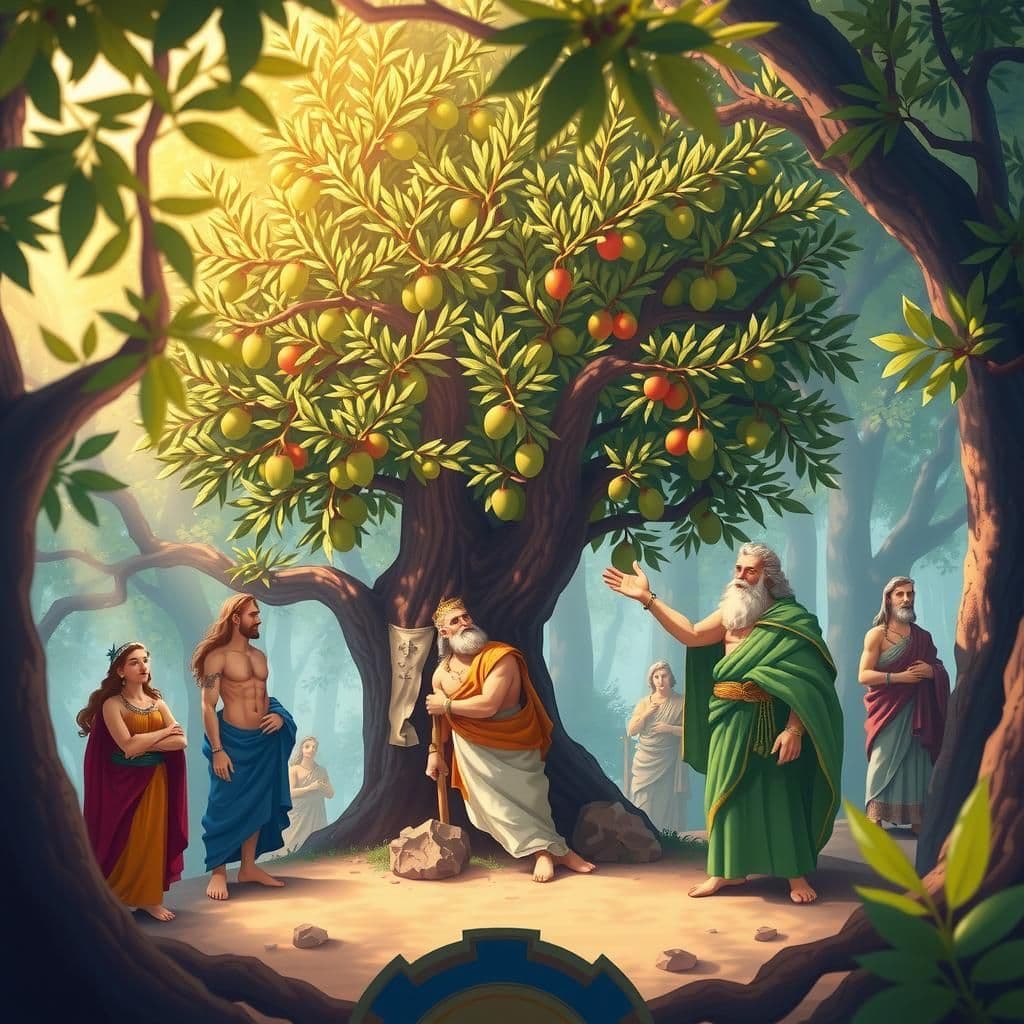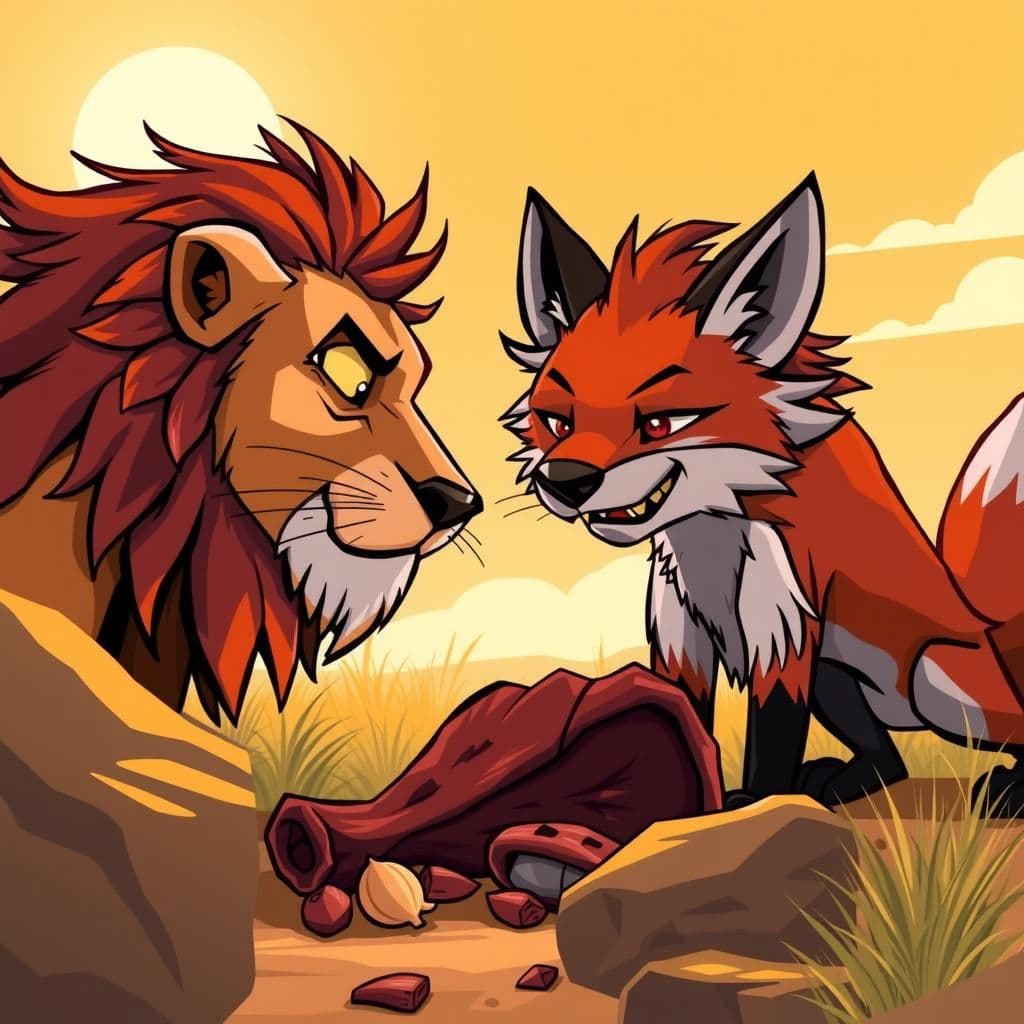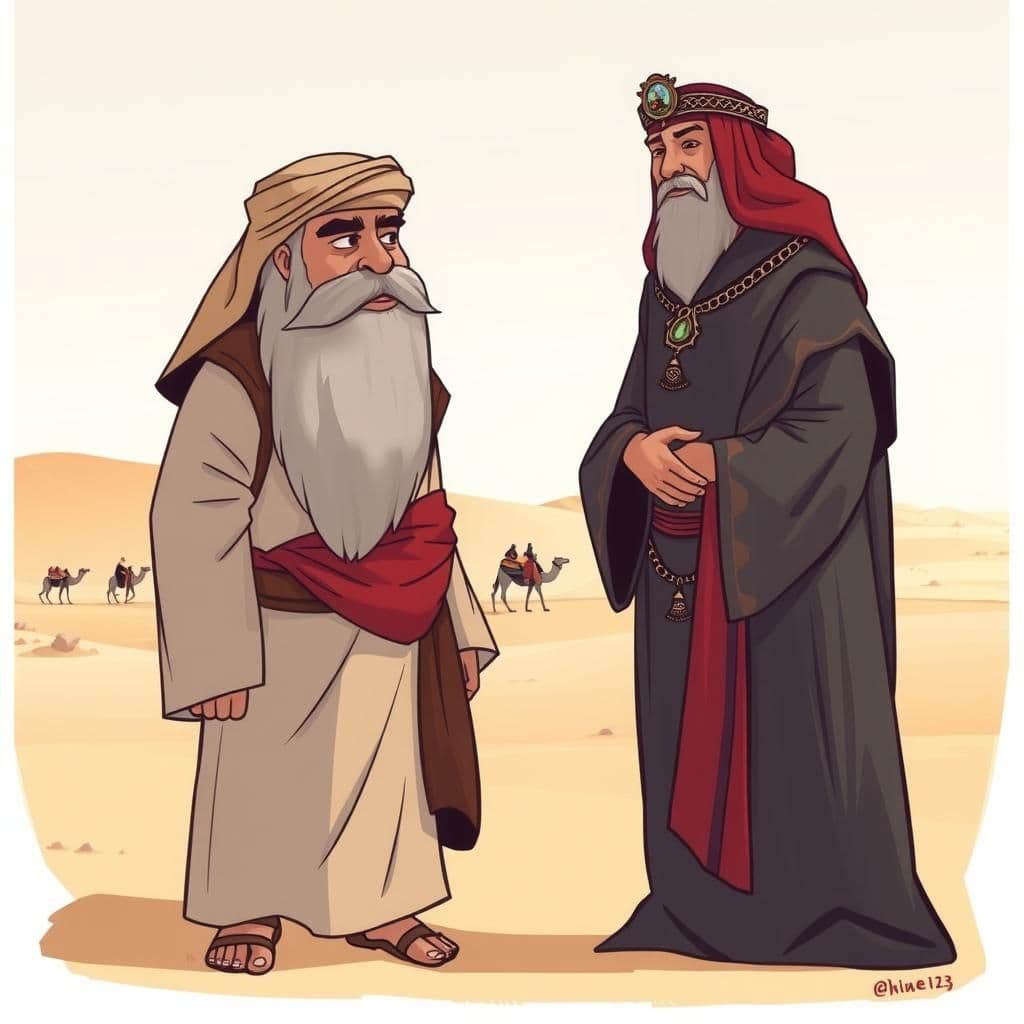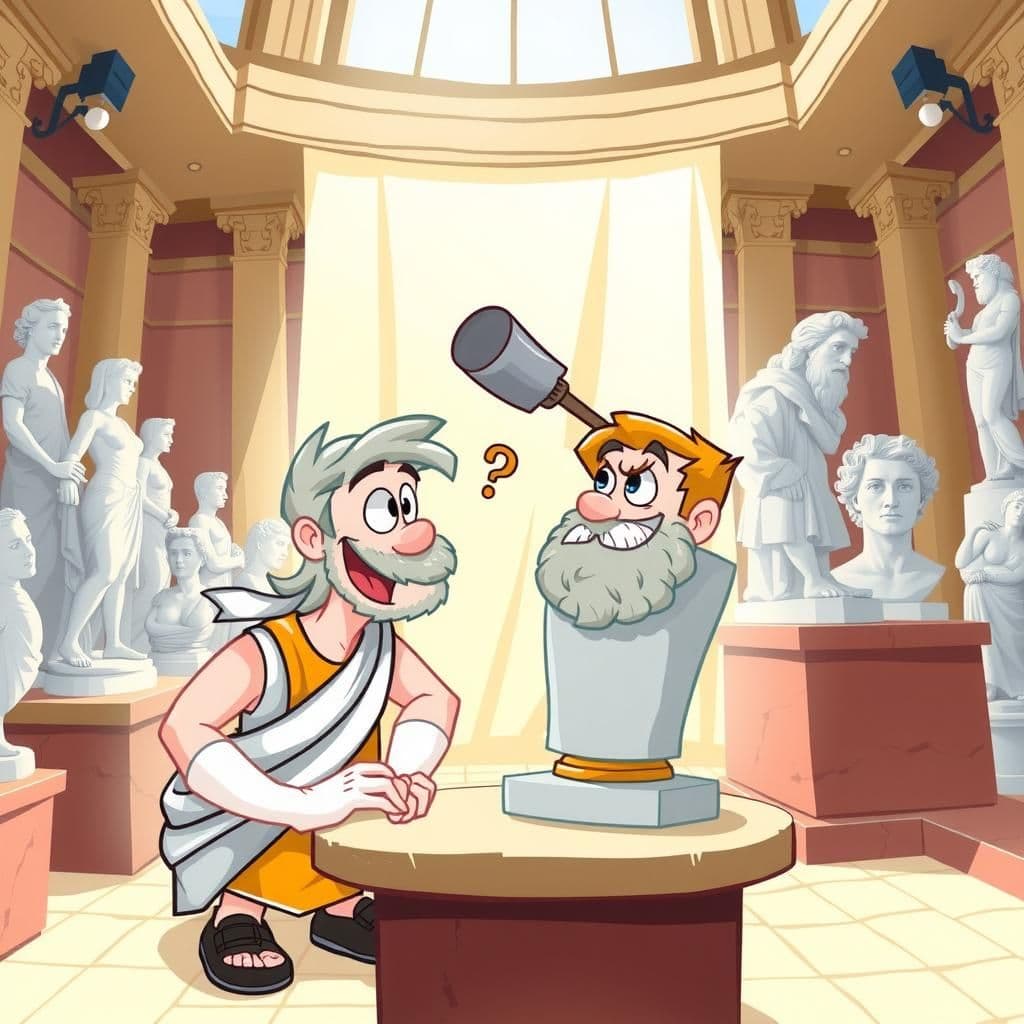The Trees Under the Protection of the Gods
In "The Trees Under the Protection of the Gods," various deities select trees for their protection, favoring those that do not bear fruit to avoid the appearance of greed. Minerva advocates for the fruitful olive, leading Jupiter to impart a thought-provoking moral: true glory lies in usefulness, not superficial honor. This short and sweet moral story highlights the importance of impact over appearance, making it a compelling lesson on value and purpose.

Reveal Moral
"The true value of actions lies in their usefulness rather than in their outward glory or appearance."
You May Also Like

The Lion the Fox and the Ass
In the short moral story "The Lion, the Fox and the Ass," three animals agree to share the spoils of a hunt. After the Ass is devoured by the Lion for dividing the loot equally, the Fox wisely learns from this misfortune and takes the largest portion for himself when asked to divide the spoils. This tale, part of folklore and moral stories, emphasizes the importance of learning from others' experiences, making it a fitting choice for bedtime moral stories.

The Fogy and the Sheik
In "The Fogy and the Sheik," a Fogy living near a caravan route discovers a Sheik boring for water, believing it will create an oasis that attracts caravans. The Sheik, however, warns that this could provide the Fogy with the opportunity to steal from the caravans. Ultimately, they come to a mutual understanding, exemplifying the simple lessons from stories that highlight the wisdom in recognizing different perspectives, a theme often found in well-known moral stories.

Mercury and the Sculptor
In "Mercury and the Sculptor," Mercury, disguised as a man, visits a sculptor to assess his esteem among mortals. After inquiring about the prices of Jupiter and Juno's statues, he humorously suggests his own statue should be valued higher, only for the sculptor to quip that he'd throw it in for free if Mercury buys the other two. This concise moral story highlights the importance of humility and the sometimes inflated self-worth that can lead to humorous situations.
Quick Facts
- Age Group
- adultkidschildrenstory for class 2story for class 3story for class 4story for class 5story for class 6story for class 7story for class 8
- Theme
- wisdomutilityhonor
- Characters
- JupiterVenusApolloCybeleHerculesMinervaoakmyrtlelaurelpinepoplarolive
Subscribe to Daily Stories
Get a new moral story in your inbox every day.